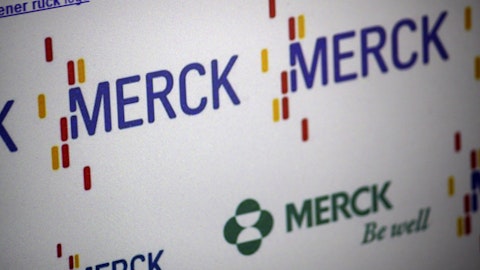And according to a transcript, Amgen CEO Bradway said he promised to add 1,600 U.S. jobs this year, which a spokesperson later confirmed: “We look forward to working collaboratively with the new administration.”
Macro and medicine aside, the upside could be huge to stock investors also. Many investors look at biotech stocks, banking purely on the innovation or the pending FDA approval (like the aforementioned Vericel example). In fact, a remarkable number of billion-dollar biotech companies have $0 in revenue, yet post market caps in the billions.
In 2013, we listed 13 of these exact stocks with billion-dollar valuations (3) that had $0 in earnings, with market value coming strictly from the speculative demand of the drug. Yet, nearly four years later, a number of these companies have failed to clear FDA approval.
Follow Eli Lilly & Co (NYSE:LLY)
Follow Eli Lilly & Co (NYSE:LLY)
Receive real-time insider trading and news alerts
As an example, Acadia secured a billion-dollar valuation back in 2013, with an FDA approval still pending and expected in 2015. They didn’t receive one till 2016. And after sitting on a $1.2 billion market cap in 2013, Amarin Corporation plc (ADR) (NASDAQ:AMRN) plummeted to just $300 million.
The company has even had to sue the FDA for rights to market its drug. (It circumvented FDA approval by citing free speech, the New York Times reported in May. The stock has since settled at $863.85M as of February 6.)
Right now, many U.S.-originated biotech advances gain approval in other countries — while having little or no access in US markets. To keep business robust, Equels says he’s sought approvals with foreign governments, including Argentina – a move designed to get a foothold in the 422 million population South American market.
“There’s a strong demand worldwide that this unmet medical need be met and we’re trying our best to do that,” Equels says. “But right now in the U.S., it’s a process that can take 12 to 20 years, and that makes it harder for [the US biotech companies] to compete globally without going into markets that have a more expedited process.
“If we want to be a leader in the biotech industry worldwide, we’ve got to make it possible for American companies to progress and thrive in the United States,” Equels adds. “Rethinking the approval process is key to making that happen.”
Follow Celgene Corp (NASDAQ:CELG)
Follow Celgene Corp (NASDAQ:CELG)
Receive real-time insider trading and news alerts
Disclosure: The views expressed here do not represent those of InsiderMonkey. Khojinur Usmonov is an external contributor to Small Cap Nation.
Additional Links:
(1) http://fortune.com/2017/01/11/trump-drug-prices-biotech-stocks/





